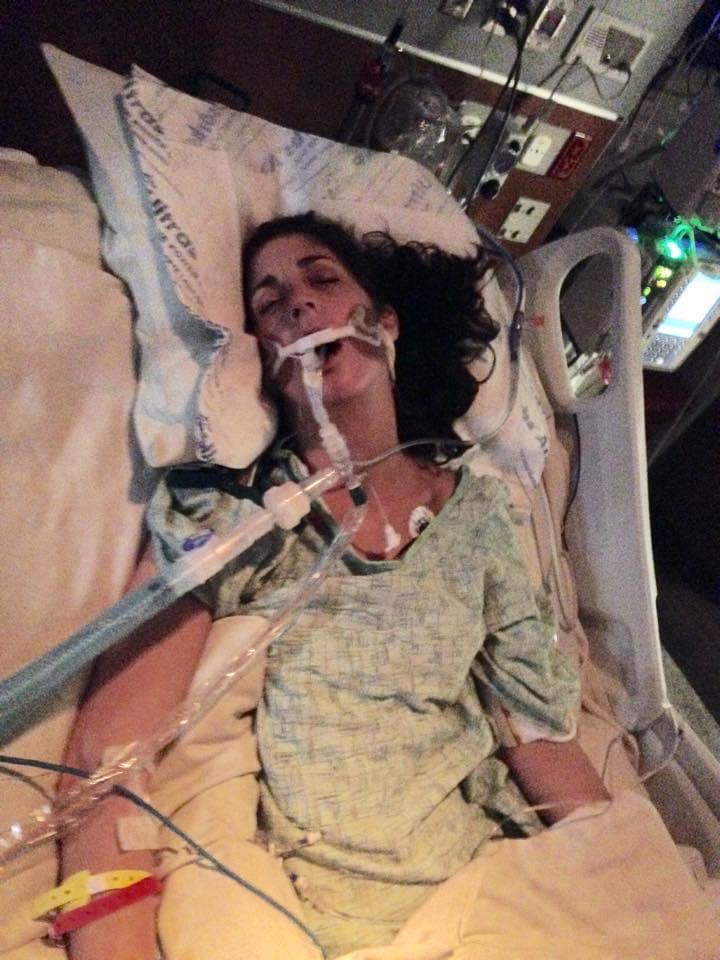When Erica Smith woke up from an induced coma, what had felt like only a moment had actually been seven days.
In 2014, Smith’s life changed. Drastically.
Though she now works as the executive administrative assistant for the Cedarville University School of Nursing, Smith had just started working at Mercy Health in Toledo, Ohio, when her mother was diagnosed with pancreatic cancer. Even though she was beginning a new job and found it hard to take time away, Smith flew to Minnesota to support her mother.
As her mother’s health declined, so did Smith’s. While in Minnesota, Smith went to the emergency room, where she was given antibiotics for bronchitis and pneumonia.
An allergic reaction to Zithromax — a medication she had taken before without issues — caused her lips to swell. She made the journey home to Toledo, but when the swelling progressed to her airway, she returned to the emergency room a second time.
“The on-call doctor said my airway was almost completely closed and that if they didn’t sedate and intubate me immediately, I would soon be unable to breathe,” said Smith.
During the next seven days, Smith was placed in a medically induced coma. The medication that slowed down her system — and therefore the swelling — also caused hallucinations. While sedated, her mind created a story to explain the repercussions of the allergic reaction and stress of restraints on her body. She felt like she was being tortured.
When she woke up, she didn’t trust the nurses, fearing they were hiding their identities behind their masks and that the medication they gave her was poison. She didn’t believe her husband had come to see her while she was sedated. She felt completely abandoned.
But as bad as all of those situations were, it got worse.
“When I came out of the coma, I thought I had been to hell,” said Smith. “Though I knew I was a Christian, I had been drifting in my relationship with God. So after that experience in the hospital, my mind told me that if I died, I was going back to where I had been.”
Twenty-two days after Smith had been in the ICU, her mother passed away. The ICU stay had left Smith too physically weak to travel, so she couldn’t even say goodbye. But God used these experiences to draw her closer to him.
Smith’s husband, Greg, took a job as the head volleyball coach at Cedarville University in 2018, where they would be immersed in a Christian community. Meanwhile, Smith began working as the executive administrative assistant for the university’s school of nursing.
“It’s been amazing to see God work,” said Smith. “I truly believe that if I hadn’t gone through a spiritual drift and hadn’t been in those valleys, I would never have appreciated being at Cedarville.”
Now, Smith uses the extra time she’s been given to serve the people around her well. She keeps a prayer wall in her office and her home, collecting prayer requests from family, friends, colleagues and students.
“I’ve never prayed more than I pray now,” Smith said. “This experience stripped away my unrealistic dependence on myself and the world so I could fully rely on God’s sovereignty. It was the most terrifyingly transformational chapter in my life, a chapter that changed my trajectory and ignited a newfound relentless pursuit of my Savior. My deepest prayer now is that others will relentlessly pursue him as well, never drifting away but rather running toward the God that will never leave.”

Cedarville University, an evangelical Christian institution in southwest Ohio, offers undergraduate and graduate programs across arts, sciences, and professional fields. With 6,384 students, it ranks among Ohio's largest private universities and is recognized by The Wall Street Journal as being among the nation’s top three evangelical universities. Cedarville is also known for its vibrant Christian community, challenging academics, and high graduation and retention rates. Learn more at cedarville.edu.
